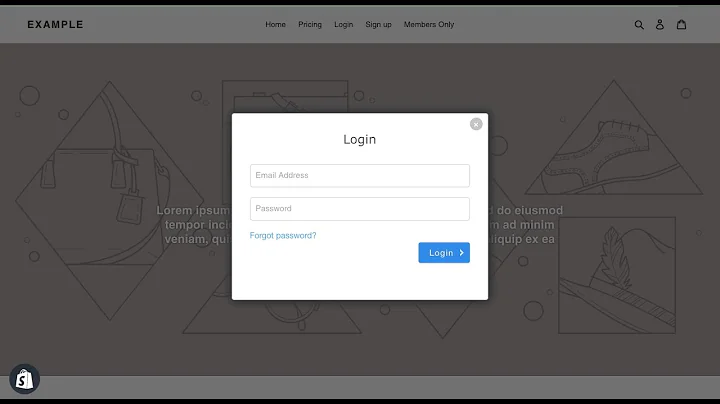The Hidden Reality of One-Product Stores
Table of Contents
- Introduction
- Why One Product Stores Are Not Effective
- Wasting Money
- Wasting Time
- No Long-Term Value
- Lack of Brand Building
- Potential Defects and Limitations
- Lack of Sales and Desirability
- Advantages of Niche Stores
- Steps to Create a Successful Niche Store
- Choosing a Profitable Niche
- Creating a Brand and Logo
- Selecting Multiple Desirable Products
- Running Dynamic Ads
- Conclusion
Why One Product Stores Are Not Effective
If you're starting an e-commerce business, it's important to consider the structure of your online store. While one product stores may seem enticing, they have many limitations and drawbacks that can hinder the success of your business. In this article, we will discuss the reasons why you should avoid creating one product stores and instead focus on niche or branded stores.
Wasting Money
One of the primary reasons why one product stores are ineffective is because they lead to unnecessary expenses. When you create a one product store, you need to invest in a domain name that is specific to that product. This means that if you decide to change your product or expand your offerings, you will need to purchase a new domain and create a new website. Additionally, you will also incur costs for designing a logo that is specific to your product. If you want to sell a different product in the future, you will need to invest in creating another logo. Moreover, you will need to pay for Shopify subscription fees for each store you create. These costs can quickly add up and drain your financial resources.
Wasting Time
Building and maintaining a one product store requires a significant investment of time. When you create a store around a single product, you need to dedicate time to setting up social media channels, creating content, and building a follower base. However, if your product doesn't sell well or becomes saturated in the market, all the time you invested in building your store and social media presence will be in vain. Additionally, you will also need to invest time in creating a non-generic logo that is related to your product. This limits your ability to sell other products and requires you to invest additional time and resources when you decide to change your product.
No Long-Term Value
One product stores are not sustainable in the long run and do not offer the potential for long-term value. Customers are unlikely to return to your store to purchase the same product again, as there is no variety or ongoing engagement. To increase your long-term value and customer loyalty, it is crucial to set up a niche store that sells similar items within the same category. This way, customers can come back to your store and make repeat purchases, boosting your lifetime value per customer.
Lack of Brand Building
Building a brand is essential for long-term success in the e-commerce industry. One product stores do not provide the opportunity to establish a strong brand presence or identity. By creating a niche store, you can develop a brand that resonates with your target audience and offers a wide range of products within a specific category. This allows you to build a loyal customer base and increase brand recognition.
Potential Defects and Limitations
When you sell a single product through a one product store, you are putting all your eggs in one basket. If that product has defects or fails to meet customer expectations, your entire store's reputation will suffer. However, by having a niche store with multiple products, you can mitigate this risk. Even if one product fails, you still have other products to generate sales and maintain a positive customer experience.
Lack of Sales and Desirability
Another disadvantage of one product stores is that they limit your potential for generating sales. Running ads for a single product is inefficient and ineffective. Customers are more likely to be interested in a store that offers a variety of products within a specific niche. By creating a niche store, you can showcase multiple desirable products to your customers, increasing the chances of making a sale.
In conclusion, one product stores are not the most effective way to build a successful e-commerce business. They waste money, time, and lack long-term value and brand building opportunities. Instead, focusing on niche or branded stores allows you to expand your product offerings, increase sales potential, and establish a strong brand presence. By following the steps outlined in this article, you can set yourself up for success in the competitive e-commerce landscape.
Highlights
- One product stores are not effective for building a successful e-commerce business.
- They lead to wastage of money on domain names, logos, and multiple Shopify subscriptions fees.
- Building and maintaining one product stores take up a significant amount of time and effort.
- One product stores lack long-term value and do not provide opportunities for brand building.
- They are at risk of potential defects and limitations associated with a single product.
- One product stores have limited sales potential and desirability compared to niche stores.
FAQ
Q: Why are one product stores not effective?
A: One product stores waste money, time, and lack long-term value and brand building opportunities.
Q: What are the disadvantages of one product stores?
A: One product stores limit sales potential, have no long-term value, and can suffer reputation damage if the product fails or has defects.
Q: What is the benefit of creating a niche store?
A: Niche stores offer the opportunity to showcase multiple desirable products, increase sales potential, and build a strong brand presence.
Q: How can I increase the success of my e-commerce business?
A: By focusing on niche or branded stores, choosing profitable niches, creating a compelling brand and logo, selecting desirable products, and running dynamic ads.















